JUSTIN LANGER: What 1.5 billion people and Jonty Rhodes have taught me about India
JUSTIN LANGER: When you hear a car horn on the spacious roads of Australia there can be anger and road rage, yet in India with 1.5 billion people and chaotic traffic there is no such sense of entitlement
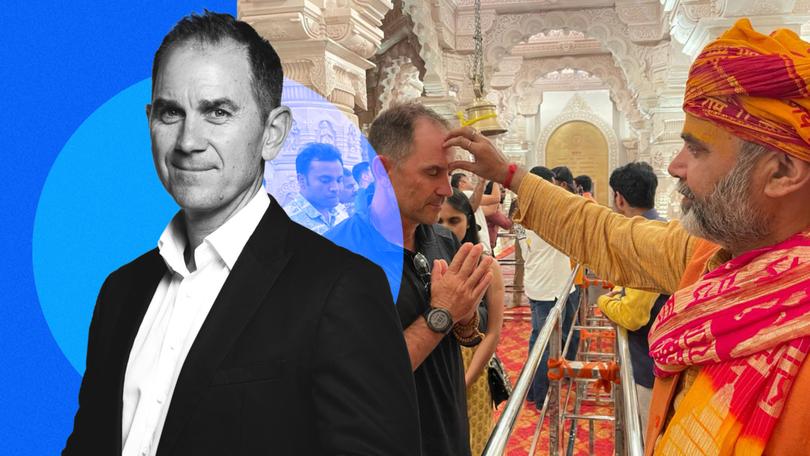
Most mornings when I’m home in Perth, I venture down to City Beach for my first coffee of the day.
The ‘Clancy’s Crew’ are at the same table every morning and they’ve become a great group of mates for my family and I.
The short macchiato with almond milk is always exceptional and on the (rare) occasion I treat myself to one of Marco’s fresh muffins, they are as good as any I have ever tasted. Warm, fresh, and delicious.
Sign up to The Nightly's newsletters.
Get the first look at the digital newspaper, curated daily stories and breaking headlines delivered to your inbox.
By continuing you agree to our Terms and Privacy Policy.Rarely does a day go by when I don’t mention to someone how lucky we are to have this perfect beach sitting on our doorstep.
The sand is snow white, our air is as pure as anywhere I have visited around the world, and there is hardly a soul in sight. We pretty much have this amazing space to ourselves, and the peacefulness of my daily coffee stop makes me feel blessed. I promise myself never to take my mornings at City Beach for granted.
Locked into this routine over the years I’ve met a lot of good people.
Mike sits at the back table every morning doing his crossword puzzle from The West. Mark is barefoot, and long-haired and takes his juice, coffee, and morning dip like medicine before his day at work. Former Australian of the Year Fiona Wood and her sister Nikki are always there, post-swim, chattering away and making us laugh. A variety of dogs are also part of the furniture.
Then there is the affectionately named ‘Phil the Book Man’.
Every day he’s there in his t-shirt and board shorts reading a book and making notes. I have never seen anyone read so many books.
Phil often comes over for a chat and will happily suggest a topic for this weekly article or recommend a ‘must-read’ book for me.
The morning I was leaving for India a few weeks ago, Phil parked himself at the wooden table next to me armed with a small bag.
“I was thinking,” he said. “While you’re away you should read some literature from a couple of the greatest writers.”
With that he handed me three books from his sack — The Essential Hemingway, F. Scott Fitzgerald’s The Great Gatsby, and 1984 by George Orwell.
If you’re reading this Phil, thanks, I have just finished Hemingway and, as you promised, his sophisticated simplicity is amazing to read.
In his novel Fiesta, Hemingway wrote some words that pretty much sum up this incredible country called India that is accommodating me as a visitor for 10 weeks.
His words were simple but poignant: “You wouldn’t believe it. It’s like a wonderful nightmare.”
The American novelist — born in 1899 — wasn’t describing India, but if he was experiencing what I have over the last few weeks, he could well have been.
Sitting at the desk in my hotel room last Sunday afternoon, my window stared straight out over the roadways.
For 15 minutes I sat transfixed to the Indian traffic. Scary, curious, perplexing, hilarious, confusing, shocking, inconceivable, mind-boggling, noisy, fantastic, staggering — all in one.
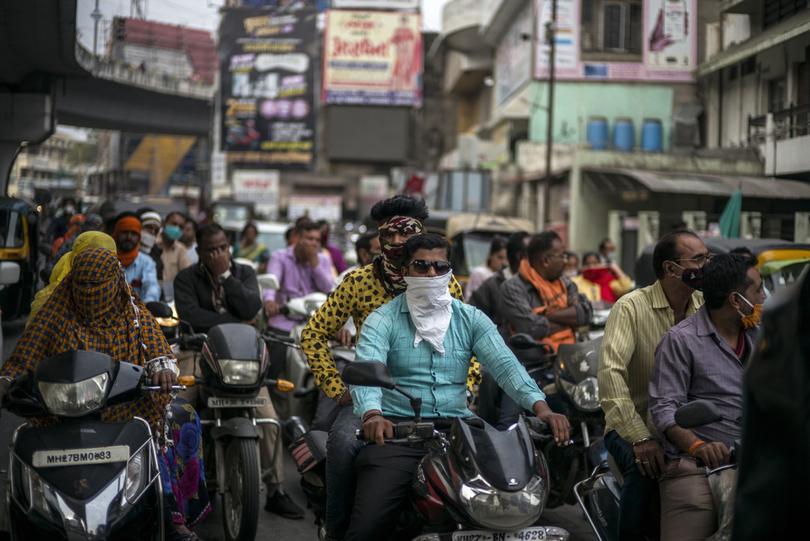
There are simply no rules, other than getting from A to B the best way you can.
Whenever I ask my Indian friends if there are any rules on the roads, they just laugh and shake their heads, ‘No, no, there are no rules, you just need to get to where you are going without hitting anyone’.
Our CEO at the Lucknow Super Giants cricket franchise (where I am currently working) told me with a big smile on his face: “Driving in India is just like a big game of chess.” Using his arms to gesticulate, he went on: “You can go backwards, forwards, sideways, diagonally, any which way you like. You just need to keep moving towards your target.”
Every road is packed with scooters, motorbikes, tuk-tuks, small cars, big cars, trucks, buses, pedestrians and, of course, cows. There are cows walking willy-nilly on most roads you see, motorways excluded.
It’s a mixture of bedlam and bizarre, yet it seems to work. Motorbikes are often mounted with two or even three people. Sometimes it’s a mum, dad and their child.
Pedestrians and street vendors walk around the coordinated chaos like they’re in the local park. The only difference is that they are a part of the moving jigsaw that exists every single day.
The beeping of horns is so constant it eventually becomes white noise in your everyday existence. It has to, or you would never sleep.
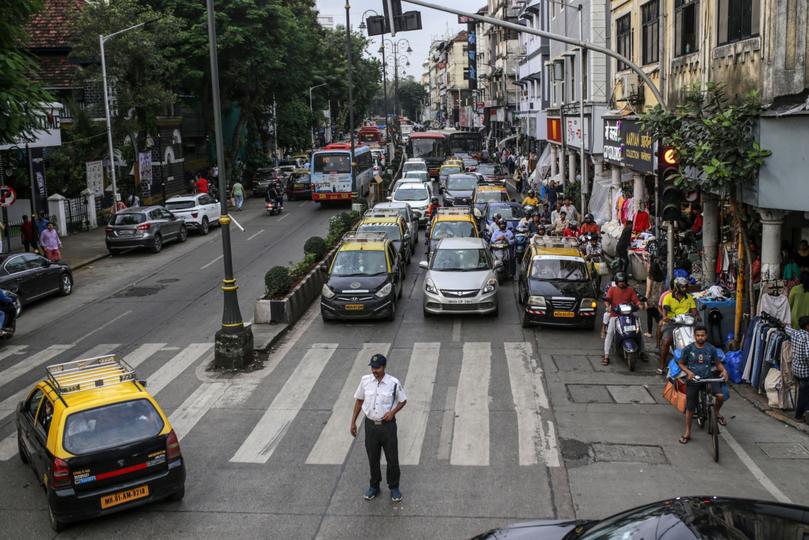
I’ve also learned that a car horn is a form of communication here in India, not as we know it at home, but rather as a gentle reminder that other drivers are close by. A honking horn is a courtesy warning, not an aggressive fight-starter.
For a foreigner, this is all complete pandemonium, but the longer you stay here, the more you realise that within the chaos seems to be a system that flows and works.
“A wonderful nightmare,” as Hemingway would say.
One of my esteemed assistant coaches is Jonty Rhodes the great South African cricketer, who was renowned as the best fieldsman to have played the game.
Jonty is a classic. He lives his life like he played his cricket. His energy is infectious, as is his free-flowing spirit. He is a health nut, who also loves a beer and a party every now and then when the time is right. There is nothing not to like about Jonty Rhodes.
Every day my little mate rides his motorbike to and from the cricket ground here in Lucknow. When I first saw this, I thought he was mad, but over the last few weeks, I’ve realised this daily routine epitomises Jonty.
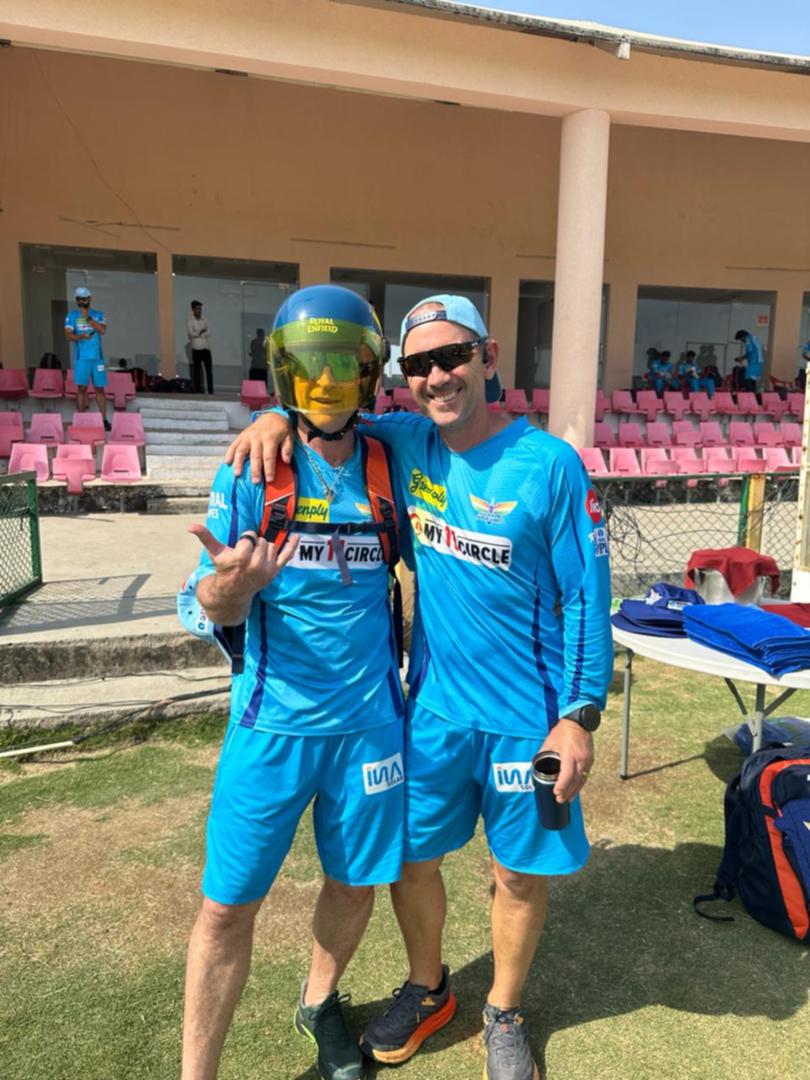
He travels next to our team bus — which is always partnered with a police escort — but weaving in and out of the traffic the pocket rocket looks so free and at ease in the surroundings. Riding his motorbike makes him happy, and I think that is so cool.
Jonty told me: “What I have learned JL is that in countries like South Africa or Australia, we have this sense of entitlement. On the roads, we feel entitled to the space we hold and if anyone gets close to us, we react as though it is a threat.
“In this awe-inspiring country, there is no entitlement because for most, that is not possible. There is no personal space, families live together, there is 1.5 billion people here, so personal space is almost non-existent. Therefore, on the road, everyone knows it is not their space, it is simply the space of everyone, and they make it work.”
He continued: “We often hear ‘carpe diem’, or ‘seize the moment’. India has taught me not only to seize the moment, but also to ‘embrace the moment’ and everything that goes with it.
“Over here, there is so much chaos, with things constantly changing. You will go mad if you try and fight it. You must be like water and simply go with the flow. Riding my bike on the roads of India has taught me this. Once upon a time, I would fight the traffic, the people, the culture, but then one day I realized that this doesn’t work.
“Embracing the chaos and culture, and going with the flow is far more peaceful and productive.”
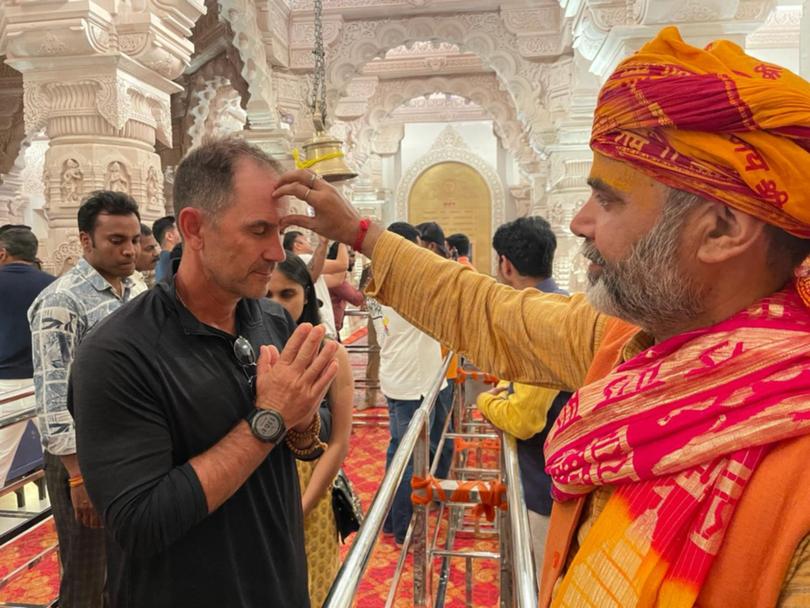
Jonty’s wonderful message is one we can all incorporate into our everyday lives. A blown horn at home often leads to road rage or aggression. This is how some people are wired — ‘get in my way and I will let you know about it. Stand in my space and I will be offended and let you know’.
We talk a lot today about embracing diversity and inclusion. Recognizing differences among individuals and cultures is important in creating more peaceful and productive communities.
Embracing the moment and enjoying the cultures of others can be an interesting way to broaden your view of life.
I am blessed to have opportunities like this as head coach of the Lucknow Super Giants, even if I occasionally miss my coffee at City Beach where life couldn’t be more different than the wonderful madness of India.
